COVID-19 has made Americans 50% more confident in the kitchen
29 Apr 2020America has gotten back to cooking as prolonged lockdowns and quarantines force individuals to stay inside and rely on their culinary skills to feed themselves. The result of this extra time spent indoors is that 54% of consumers report they are cooking more and 76% of those say they are more confident in the kitchen (50%) or are learning more about cooking and starting to build more confidence (26%), according to a survey from marketing communications consultant Hunter.
In recent years, cooking has been pushed aside in favor of eating out, preparing pre-made meals or opting for snacks. However, this survey of 1,005 Americans shows that perhaps that trend is on its way out. It turns out that cooking is an enjoyable activity for 73% of those surveyed, so much so that 51% reported that they will continue cooking when the coronavirus crisis subsides.
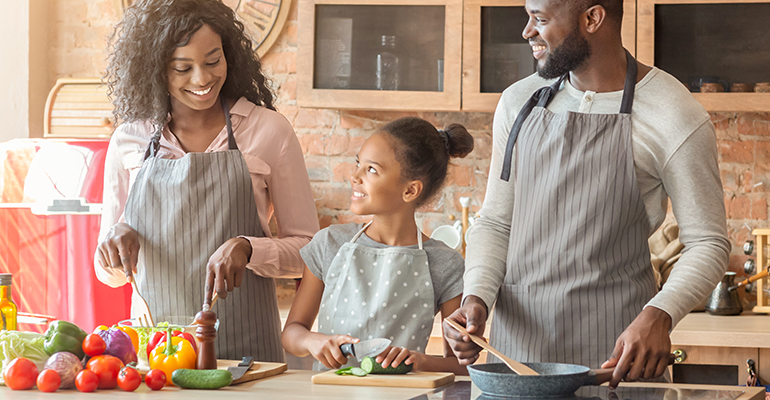
Increased commitment to cooking meals is not the only activity on the rise though. Snacking is at an all-time high with 50% of households reporting they are snacking more than before the spread of COVID-19. This is no surprise as snacking has slowly been replacing meals as the preferred way to eat. In the 2019 Mondelez International's "State of Snacking" report, the company showed snacking is preferred to meals for 59% of adults worldwide.
This love for snacks does not mean Americans are eating any less healthy. Long gone are the days when snacks meant chips and candy bars; today snacks span the better-for-you category with a wide variety of offerings. Still, both kinds of snacks exist, and according to the Hunter survey, those who are coping with confinement by pursuing healthier eating strategies and those who are seeking comfort in indulgent foods are split down the middle. Thirty-nine percent of those surveyed are turning toward healthier options while 40% are indulging.
Alcohol consumption was reported to be on the rise for those in the 25-33-year-old age bracket in households with an income over $100,000. This finding aligns with market trend reports from Nielsen that show sales of alcoholic beverages soared 55% in the third week of March. The majority of this spike was concentrated in the spirits category, according to Republic National Distributing Company (RNDC) and reported by Forbes.
For those who are cooking more, Hunter reports that they are showing an increased interest in new ingredients and new brands. Some of this may be due to the 35% of individuals who are searching for a new cooking project or creative techniques that allow for experimentation. However, these creative proclivities are turning out to be driven by resourcefulness rather than wastefulness. Sixty percent of adults polled said they are looking for recipes that use the ingredients they have on hand, which has resulted in 57% of households wasting less food than before the coronavirus pandemic.
Amid all this stress of COVID-19 and learning new skills, it seems that half of Americans surveyed find cooking relaxing. “We have long regarded Americans as consummate optimists. When the going gets tough, they find a way to prevail and in this case, they are choosing to redirect their energy and creativity to the kitchen, not only finding joy in the process of cooking, but also in the benefits that come from it,” Heddy DeMaria, chief insights officer at Hunter.
Related news

Plastic packaging reduction requires industry rethink
6 Jan 2023
The food and beverage sector is calling for industry-wide collaboration and business model updates to reduce the environmental impact of plastic packaging.
Read more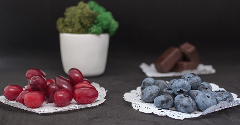
Misleading nutrition claims mask true sugar levels in baby food
5 Jan 2023
Some baby and toddler food and drink products, sweetened with fruit concentrate, contain up to four teaspoons of sugar per serving yet are marketed as having ‘no added sugar’, according to a survey by Action on Sugar.
Read more
Asian beverage brands deal with rising costs
4 Jan 2023
Decreasing bottle sizes or increasing prices? Asian beverage brands are finding “creative approaches” to manage rising costs, according to industry analysts.
Read more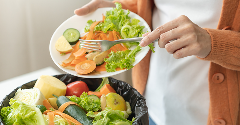
Preserving the freshness of food to fight waste
3 Jan 2023
Several companies are producing products that absorb ethylene, the hormone that causes food to ripen, in attempt to reduce food waste.
Read more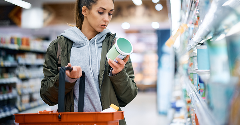
Value-seeking US consumers cut back on food spending
2 Jan 2023
Cheaper items, smaller sizes, and shorter grocery lists: inflationary effects coupled with a global long-term recession are set to continue shaping food spending habits, according to a recent Rabobank report.
Read more
Opportunities grow for lower-caffeine coffee
23 Dec 2022
Many consumers want the mental focus of caffeine without the jitters, prompting a wave of product development such as “half caffeine” ground coffee or ready-to-drink (RTD) cold brew blended with relaxing botanicals.
Read more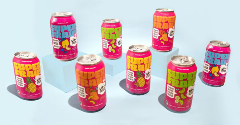
Superfrau upcycles liquid whey for energy drinks
22 Dec 2022
US company Superfrau turns surplus whey into sustainable, upcycled-certified dairy products for the recovery drinks market.
Read more
Malaysian brand Nanka brings jackfruit range to Europe
21 Dec 2022
Malaysian brand Nanka is expanding to new Asian and European markets with its fast and ready-to-eat plant-based products based on jackfruit.
Read more
Is the UK on target to meet its 2025 Plastics Pact?
20 Dec 2022
Major food industry players, including Arla, Kerry, PepsiCo and TerraCycle, have signed the UK’s voluntary Plastic Pact to reduce plastic from the supply chain – but are they on track to meet their targets?
Read more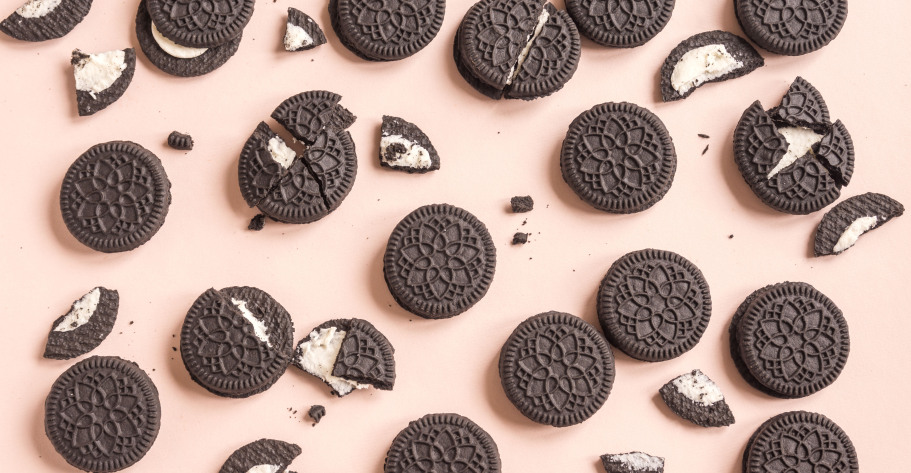
Ammonia emissions, Oreo cookies, and Olam
19 Dec 2022
Olam Food Ingredients (Ofi) and Mondelēz are under fire for using ammonium carbonate, an authorised food additive, in cocoa and Oreo cookies - but the accusations stem from greater concerns over industrial emissions of toxic ammonia and nitrogen oxide ...
Read more